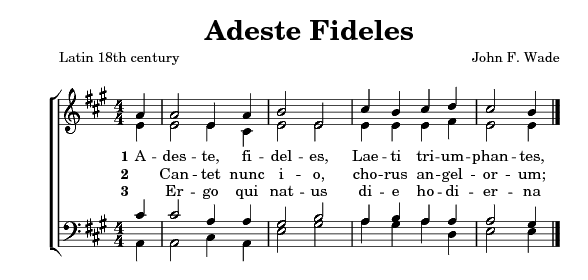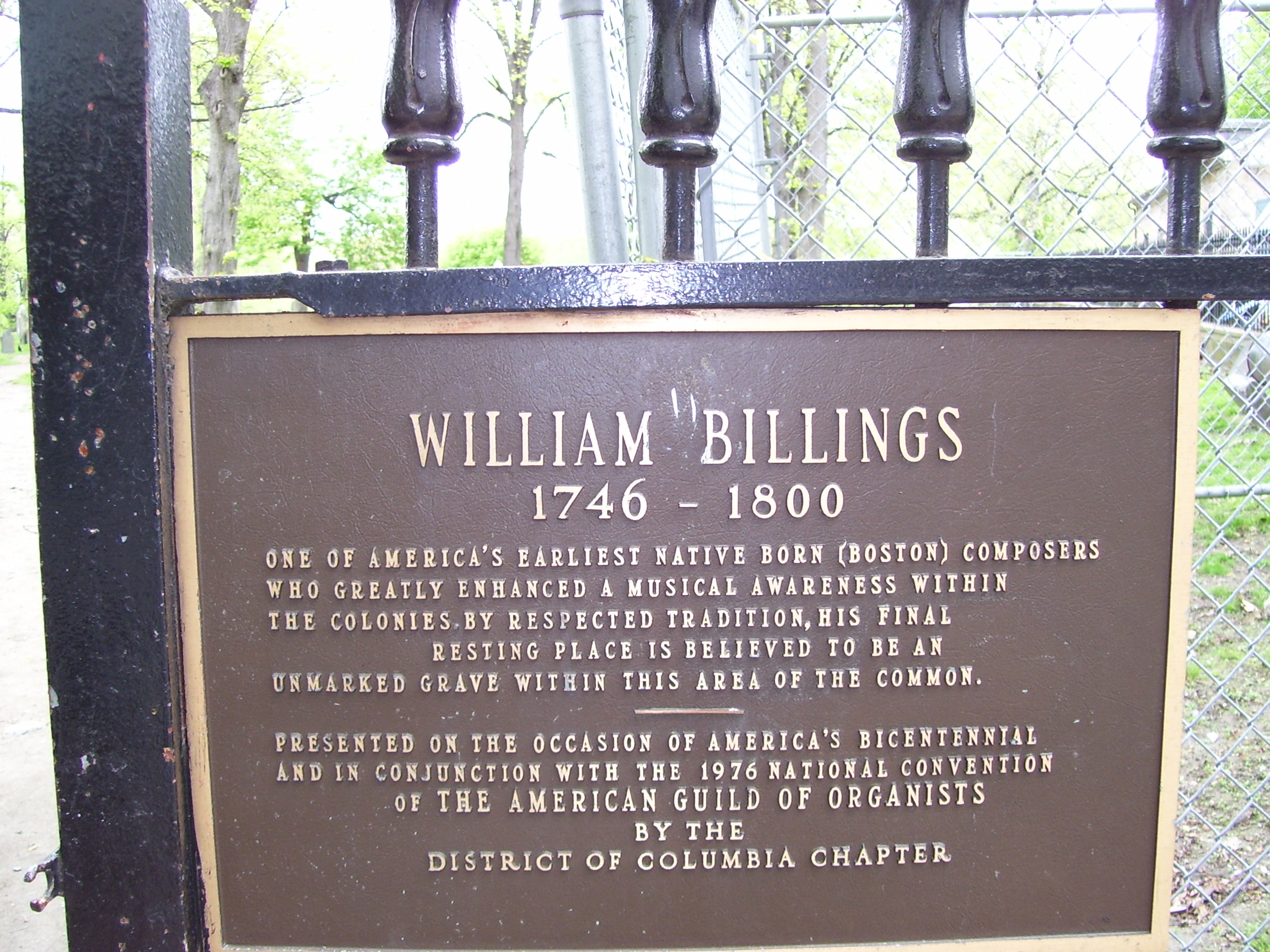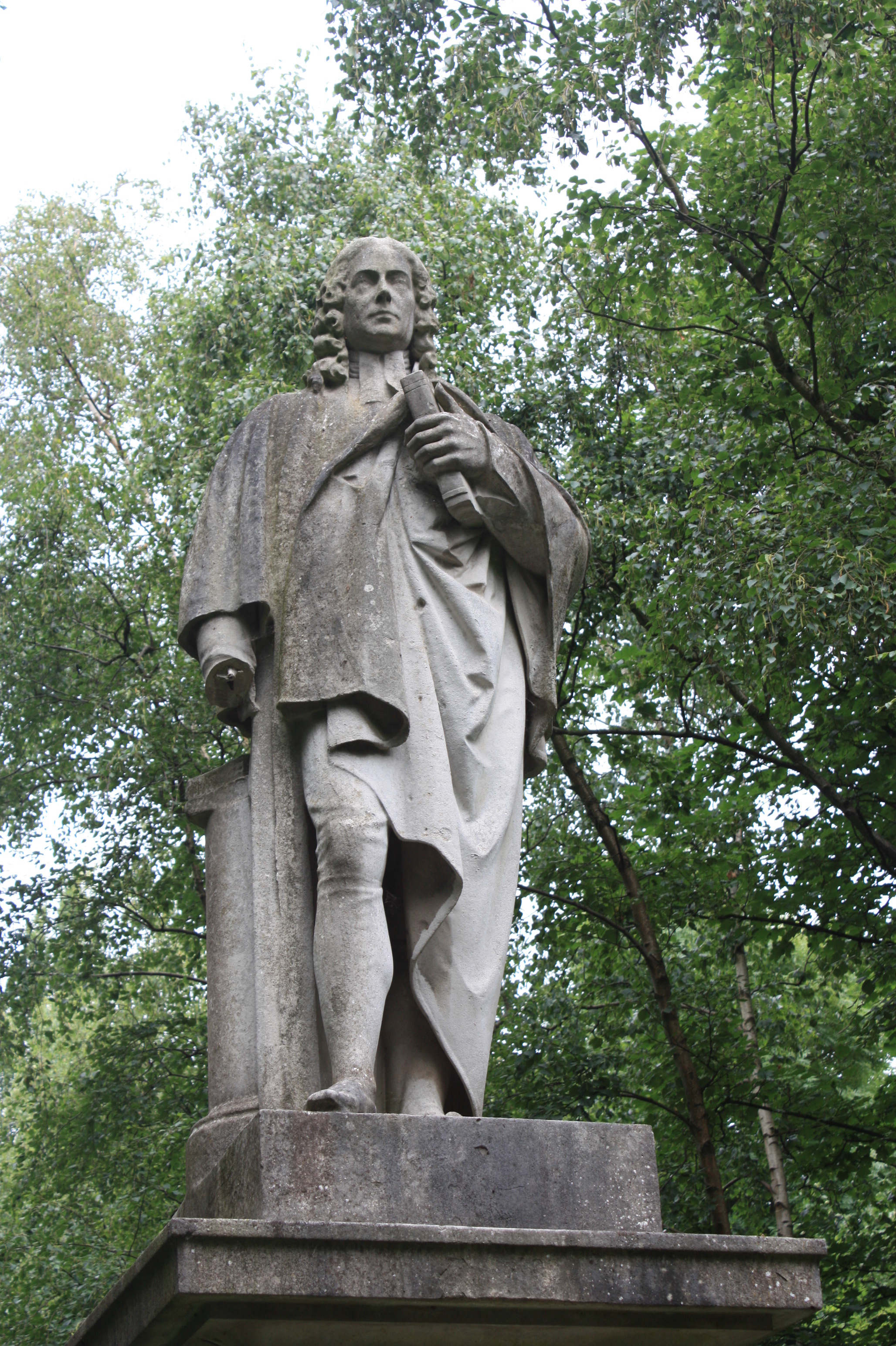|
Creation (William Billings)
''Creation'' is a hymn tune composed by William Billings. History Billings included ''Creation'' in his final collection, ''The Continental Harmony'' (published in 1794). The words are by Isaac Watts: the first stanza is from Psalm 139 and the second from hymn 19, book 2, of his ''Hymns''. In 2002, historian of science Edward B. Davis (co-editor of ''The Works of Robert Boyle'') discovered that Watts based the second stanza on a meditation by the famous chemist Robert Boyle. In that text, from ''Occasional Reflections Upon Several Subjects'' (1665), Boyle reflected on an illness from which he had recovered, noting the great complexity of the human body and the wonder of how it all stays so well for so many years.Edward B. Davis, "Robert Boyle as the Source of an Isaac Watts Text set for a William Billings Anthem," ''The Hymn: A Journal of Congregational Song'', 53 (2002), 46-7 Words See also * Africa (William Billings), hymn tune with music score * Chester (song), an American ... [...More Info...] [...Related Items...] OR: [Wikipedia] [Google] [Baidu] |
Hymn Tune
A hymn tune is the melody of a musical composition to which a hymn text is sung. Musically speaking, a hymn is generally understood to have four-part (or more) harmony, a fast harmonic rhythm (chords change frequently), with or without refrain or chorus. From the late sixteenth century in England and Scotland, when most people were not musically literate and learned melodies by rote, it was a common practice to sing a new text to a hymn tune the singers already knew which had a suitable meter and character. There are many hymn tunes which might fit a particular hymn: a hymn in Long Metre might be sung to any hymn tune in Long Metre, but the tunes might be as different as those tunes that have been used for centuries with hymns such as ''Te lucis ante terminum'', on one hand, and an arrangement of the calypso tune used with ''Jamaica Farewell'', on the other. Hymnal editors Editors bring extensive knowledge of theology, poetry, and music to the process of compiling a new hymn ... [...More Info...] [...Related Items...] OR: [Wikipedia] [Google] [Baidu] |
William Billings
William Billings (October 7, 1746 – September 26, 1800) is regarded as the first American choral composer and leading member of the First New England School. Life William Billings was born in Boston, Massachusetts. At the age of 14, the death of his father stopped Billings' formal schooling. In order to help support his family, young Billings trained as a tanner. He possibly received musical instruction from John Barry, one of the choir members at the New South Church, but for the most part he was self-taught. Billings had an unusual appearance and a strong addiction to snuff. His contemporary wrote that Billings "was a singular man, of moderate size, short of one leg, with one eye, without any address & with an uncommon negligence of person. Still, he spake & sung & thought as a man above the common abilities." Billings' wife died on March 26, 1795, leaving him with six children under the age of 18. He died in poverty in Boston on September 26, 1800. His funeral was ... [...More Info...] [...Related Items...] OR: [Wikipedia] [Google] [Baidu] |
Isaac Watts
Isaac Watts (17 July 1674 – 25 November 1748) was an English Congregational minister, hymn writer, theologian, and logician. He was a prolific and popular hymn writer and is credited with some 750 hymns. His works include "When I Survey the Wondrous Cross", "Joy to the World", and "Our God, Our Help in Ages Past". He is recognized as the "Godfather of English Hymnody"; many of his hymns remain in use today and have been translated into numerous languages. Life Watts was born in Southampton, Hampshire, England, in 1674 and was brought up in the home of a committed religious nonconformist; his father, also Isaac Watts, had been incarcerated twice for his views. Watts had a classical education at King Edward VI School, Southampton, learning Latin, Greek, and Hebrew. Watts displayed a propensity for rhyme from an early age. He was once asked why he had his eyes open during prayers, to which he responded: He received corporal punishment for this, to which he cried: Watts co ... [...More Info...] [...Related Items...] OR: [Wikipedia] [Google] [Baidu] |
Psalm 139
Psalm 139 is the 139th psalm of the Book of Psalms, beginning in English in the King James Version: "O Lord, thou hast searched me, and known me". In Latin, it is known as "Domine probasti me et cognovisti me". The psalm is a hymn psalm. Attributed to David, it is known for its affirmation of God's omnipresence. Alexander Kirkpatrick states that "the consciousness of the intimate personal relation between God and man which is characteristic of the whole Psalter reaches its climax here". In the slightly different numbering system used in the Greek Septuagint version of the Bible, and in the Vulgate, this psalm is Psalm 138. The psalm forms a regular part of Jewish, Catholic, Lutheran, Anglican and other Protestant liturgies. It has often been set to music. Background and themes According to the Midrash Shocher Tov, Psalm 139 was written by Adam. Verses 5 and 16, for example, allude to the formation of the First Man. Abramowitz explains that the themes of the psalm relate to ... [...More Info...] [...Related Items...] OR: [Wikipedia] [Google] [Baidu] |
Robert Boyle
Robert Boyle (; 25 January 1627 – 31 December 1691) was an Anglo-Irish natural philosopher, chemist, physicist, alchemist and inventor. Boyle is largely regarded today as the first modern chemist, and therefore one of the founders of modern chemistry, and one of the pioneers of modern experimental scientific method. He is best known for Boyle's law, which describes the inversely proportional relationship between the absolute pressure and volume of a gas, if the temperature is kept constant within a closed system. Among his works, '' The Sceptical Chymist'' is seen as a cornerstone book in the field of chemistry. He was a devout and pious Anglican and is noted for his writings in theology. Biography Early years Boyle was born at Lismore Castle, in County Waterford, Ireland, the seventh son and fourteenth child of The 1st Earl of Cork ('the Great Earl of Cork') and Catherine Fenton. Lord Cork, then known simply as Richard Boyle, had arrived in Dublin from England i ... [...More Info...] [...Related Items...] OR: [Wikipedia] [Google] [Baidu] |
Africa (William Billings)
"Africa" is an 18th-century hymn tune by American choral composer William Billings, who worked in New England. History Billings wrote "Africa" some time before 1770 and included it in his first published hymnbook, ''The New England Psalm Singer''. Later he revised it, publishing a new version in his ''The Singing Master's Assistant'' (1778). He made additional revisions, publishing it again in ''Music in Miniature'' (1779). It is the latter two versions that are performed today. The name of the hymn is, as far as can be determined, completely arbitrary, and reflects a practice of Billings's day to give names specifically to the ''tunes'' of songs. Billings also wrote an "Asia" and an "America"; more often, he adopted the names of (arbitrarily chosen) New England towns to label his tunes. Music Version of 1778. Musically, the work is notable for the parallel descending thirds and sixths that shift from part to part. Some renditions of this hymn (for example, the practice of ... [...More Info...] [...Related Items...] OR: [Wikipedia] [Google] [Baidu] |
Chester (song)
"Chester" is a patriotic anthem composed by William Billings and sung during the American Revolutionary War. Billings wrote the first version of the song for his 1770 songbook ''The New England Psalm Singer'', and made improvements for the version in his ''The Singing Master's Assistant'' (1778). It is the latter version that is best known today. The curious title of the song reflects a common practice of Billings's day, in which tunes were labeled with (often arbitrarily chosen) place names. Billings's song evidently has little more to do with any particular town named Chester than his famous hymn "Africa" has to do with Africa. The idea behind this practice was that by labeling the tunes independently, one could sing them to different words without creating confusion (indeed, this later did happen; see below). Tune in version of 1778 Parts labeled "Treble, Counter, Tenor, and Bass" correspond to the modern SATB four-voice choir. However, the melody is in the tenor part, ... [...More Info...] [...Related Items...] OR: [Wikipedia] [Google] [Baidu] |
American Revolutionary War
The American Revolutionary War (April 19, 1775 – September 3, 1783), also known as the Revolutionary War or American War of Independence, was a major war of the American Revolution. Widely considered as the war that secured the independence of the United States, fighting began on April 19, 1775, followed by the Lee Resolution on July 2, 1776, and the Declaration of Independence on July 4, 1776. The American Patriots were supported by the Kingdom of France and, to a lesser extent, the Dutch Republic and the Spanish Empire, in a conflict taking place in North America, the Caribbean, and the Atlantic Ocean. Established by royal charter in the 17th and 18th centuries, the American colonies were largely autonomous in domestic affairs and commercially prosperous, trading with Britain and its Caribbean colonies, as well as other European powers via their Caribbean entrepôts. After British victory over the French in the Seven Years' War in 1763, tensions between the motherland and he ... [...More Info...] [...Related Items...] OR: [Wikipedia] [Google] [Baidu] |
Hymn Tunes
A hymn tune is the melody of a musical composition to which a hymn text is sung. Musically speaking, a hymn is generally understood to have four-part (or more) harmony, a fast harmonic rhythm (chords change frequently), with or without refrain or chorus. From the late sixteenth century in England and Scotland, when most people were not musically literate and learned melodies by rote, it was a common practice to sing a new text to a hymn tune the singers already knew which had a suitable meter and character. There are many hymn tunes which might fit a particular hymn: a hymn in Long Metre might be sung to any hymn tune in Long Metre, but the tunes might be as different as those tunes that have been used for centuries with hymns such as ''Te lucis ante terminum'', on one hand, and an arrangement of the calypso tune used with ''Jamaica Farewell'', on the other. Hymnal editors Editors bring extensive knowledge of theology, poetry, and music to the process of compiling a new hymn ... [...More Info...] [...Related Items...] OR: [Wikipedia] [Google] [Baidu] |
1794 Compositions
Events January–March * January 1 – The Stibo Group is founded by Niels Lund as a printing company in Aarhus (Denmark). * January 13 – The U.S. Congress enacts a law providing for, effective May 1, 1795, a United States flag of 15 stars and 15 stripes, in recognition of the recent admission of Vermont and Kentucky as the 14th and 15th states. A subsequent act restores the number of stripes to 13, but provides for additional stars upon the admission of each additional state. * January 21 – King George III of Great Britain delivers the speech opening Parliament and recommends a continuation of Britain's war with France. * February 4 – French Revolution: The National Convention of the French First Republic abolishes slavery. * February 8 – Wreck of the Ten Sail on Grand Cayman. * February 11 – The first session of the United States Senate is open to the public. * March 4 – The Eleventh Amendment to the United States Constit ... [...More Info...] [...Related Items...] OR: [Wikipedia] [Google] [Baidu] |





